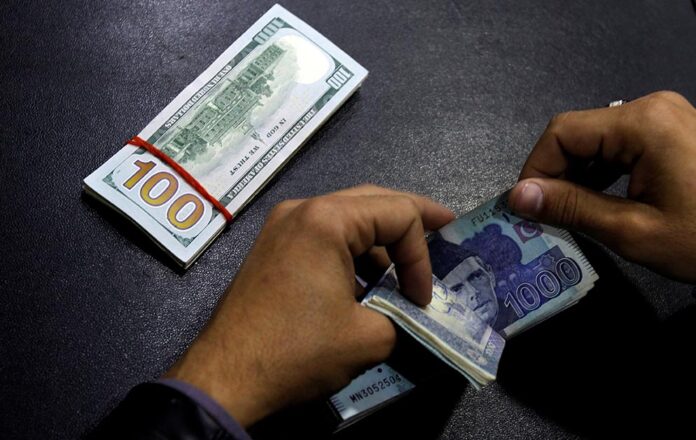The International Monetary Fund’s (IMF) condition of maintaining a market-based exchange rate has kept the US dollar overvalued by at least 24%, or Rs67, over the past two years.
The Express Tribune reported, citing an Economy Alert note by tax advisory firm Tola Associates, that the rupee’s average value without the IMF condition would have been Rs211.5 by the end of October.
The central bank has consistently stated that the current rupee-dollar exchange rate reflects market expectations. However, tax advisory firm argued that the overvalued dollar has negatively impacted the economy, contributing to inflation and higher interest payments.
Based on an estimated three-year average, the firm calculated that adjusting the exchange rate to Rs211.5 could have significant economic benefits. It claimed this adjustment could transform the 8.7% inflation rate for July-October into deflation of 4.67%, enabling a reduction in interest rates to below 2%.
The advisory firm estimated that a 1% decline in interest rates could save the government Rs475 billion in domestic debt repayments this fiscal year. It further claimed that such measures could create fiscal space of Rs6.4 trillion, which could be redirected to development and economic growth.
Former finance minister Ishaq Dar, now deputy prime minister, said last month that the rupee’s value should not exceed Rs240 to the dollar based on economic fundamentals. Dar opposed a free-floating exchange rate, arguing it harms the economy and the public.
Critics of the current policies claim the central bank has kept the rupee undervalued to buy dollars from the market, reportedly purchasing over $6 billion last fiscal year and $722 million in July alone. This was possible due to the higher rupee-dollar parity under IMF policies.
The IMF has maintained that a market-based exchange rate is crucial for rebuilding reserves and ensuring competitiveness. At the time of approving its $7 billion loan programme, the IMF highlighted the importance of exchange rate flexibility as a shock absorber for the economy.
























